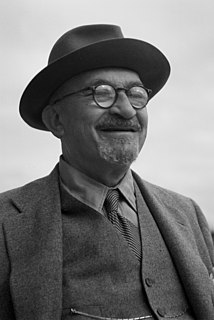A Quote by H. V. Evatt
The Declaration has a moral power which is of enormous weight and influence. The statement of the rights represent a goal, or a standard, to which every man can look and with which he can compare what he in fact enjoys. The fact that no country was prepared to vote against the Declaration indicates its compelling moral force.
Related Quotes
The Universal Declaration of Human Rights recognizes that 'if man is not to be compelled to have recourse, as a last resort, to rebellion against tyranny and oppression', human rights should be protected by the rule of law. That just laws which uphold human rights are the necessary foundation of peace and security would be denied only by closed minds which interpret peace as the silence of all opposition and security as the assurance of their own power.
There had been observed in this country certain streams of influence which are causing a marked deterioration in our literature, amusements, and social conduct...a nasty Orientalism which had insidiously affected every channel of expression...The fact that these influences are all traceable to one racial source [Judaism] is something to be reckoned with...Our opposition is only in ideas, false ideas, which are sapping the moral stamina of the people.
The Gospel is a declaration of something totally finished apart from our agreement or vote. Inside that declaration is an ongoing and relentless invitation to deepening relationship but any lack of belief or participation on our part has no power to negate the accomplished truth of that declaration.
In its main features the Declaration of Independence is a great spiritual document. It is a declaration not of material but of spiritual conceptions. Equality, liberty, popular sovereignty, the rights of man - these are not elements which we can see and touch. They are ideals. They have their source and their roots in the religious convictions. They belong to the unseen world. Unless the faith of the American people in these religious convictions is to endure, the principles of our Declaration will perish. We can not continue to enjoy the result if we neglect and abandon the cause.
Our example - and commitment - to freedom has changed the world. But along with the genius of our Declaration of Independence, our Constitution, and our Bill of Rights, is the equal genius of our economic system. Our Founding Fathers endeavored to create a moral and just society like no other in history, and out of that grew a moral and just economic system the likes of which the world had never seen. Our freedom, what it means to be an American, has been defined and sustained by the liberating power of the free enterprise system.
By a declaration of rights, I mean one which shall stipulate freedom of religion, freedom of the press, freedom of commerce against monopolies, trial by juries in all cases, no suspensions of the habeas corpus, no standing armies. These are fetters against doing evil which no honest government should decline.
Economic and military power can be developed under the spur of laws and appropriations. But moral power does not derive from any act of Congress. It depends on the relations of a people to their God. It is the churches to which we must look to develop the resources for the great moral offensive that is required to make human rights secure, and to win a just and lasting peace.
We must never cease to proclaim in fearless tones the great principles of freedom and the rights of man which are the joint inheritance of the English-speaking world and which through Magna Carta, the Bill of Rights, the Habeas Corpus, trial by jury, and the English common law find their most famous expression in the American Declaration of Independence.
Why does everyone take for granted that we don't learn to grow arms, but rather, are designed to grow arms? Similarly, we should conclude that in the case of the development of moral systems; there's a biological endowment which in effect requires us to develop a system of moral judgment and a theory of justice, if you like, that in fact has detailed applicability over an enormous range.
If there is no absolute moral standard, then one cannot say in a final sense that anything is right or wrong. By absolute we mean that which always applies, that which provides a final or ultimate standard. There must be an absolute if there are to be morals, and there must be an absolute if there are to be real values. If there is no absolute beyond man's ideas, then there is no final appeal to judge between individuals and groups whose moral judgments conflict. We are merely left with conflicting opinions.
The Declaration of Independence was to set forth the moral justification of a rebellion against a long-recognized political tradition - the divine right of kings. At issue was the fundamental question of whether men's rights were God-given or whether these rights were to be dispensed by governments to their subjects. This document proclaimed that all men have certain inalienable rights. In other words, these rights came from God.

































